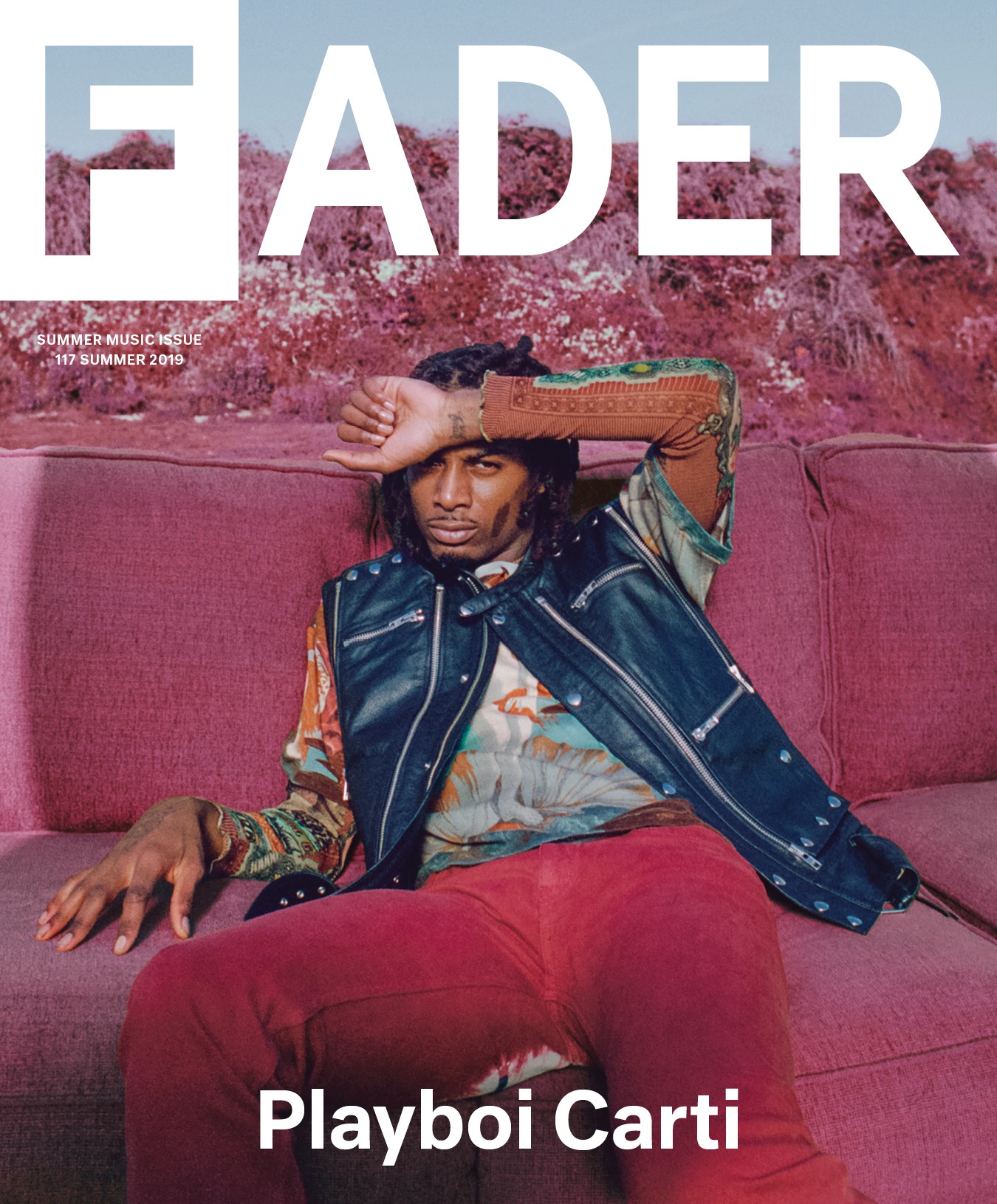

“It’s obvious that he’s genre-agnostic and that he’s influenced by a ton of different things he is making a path and he’s not fitting into something that’s going on.” New Pathways to Success

“I feel like he’s hit on our platform like no other artist because he’s always setting the tone instead of always being a part of something that’s going on,” Lisa Ellis, the Global Head of Music, Artist Relations, and Label Services at SoundCloud tells TIME. While an older generation disparaged his seeming lack of lyrical content, a younger fanbase reveled in its absurdity a version of the song in which Lil Uzi only says “yeah” for 5 minutes has racked up 5 million views on YouTube. Many listeners heard him for the first time on the number one Migos hit “Bad and Boujee” in 2016, for which he wore a Marilyn Manson shirt in the song’s video and opened his verse by repeating “yeah” over and over euphorically. But Uzi’s emergence on Soundcloud allowed him to not only make the kind of genre-defying music he dreamed of, but to garner a huge fanbase that’s alarmingly robust across multiple categories (he was named SoundCloud’s “Most Followed Artist” in 2016, just two years after he uploaded his first track to the platform).Īs Uzi made the move from Soundcloud to signing with a record label, his faithful following enabled him to stick to his creative guns. His sound, which draws on the influences of emo and punk as much as it does Atlanta trap and Chicago drill, could have been pigeonholed and watered down into a singular hip-hop category if he had started his career at a conventional record label. While many of these rappers, from Lil Pump to Lil Yachty, found widespread success, Lil Uzi might best epitomize the spirit of SoundCloud, using the freedom of the Internet to stay true to his artistic vision. In the mid-2010s, Lil Uzi began his rise on Soundcloud alongside a generation of young hip-hop artists weaponizing the uninhibited ethos and reach of the platform. In the wake of Eternal Atake’s release, several industry insiders and collaborators weighed in on how Lil Uzi has ascended to such rarefied air. “In the future, you’ll be able to see a lot of trends, attitudes and openness influenced by him-but he will always be ahead of that.” “He was one of the first young artists in the last half-decade to look at his creative output overall: how he was releasing, distributing, and presenting the music the videos he was shooting, the way he was approaching his live shows,” Zane Lowe, a DJ and the Global Creative Director of Apple Music, says. How did such an alienating and iconoclastic figure ascend to the top of the pop music world? In a post-genre, streaming-dominated landscape, Lil Uzi has become the perfect avatar for the many changes happening in the music industry-and his creative choices have shifted many norms around genre, masculinity, and stardom. This week, Chance the Rapper took to Instagram to dance to Uzi’s #6 hit “Baby Pluto” and scream, “UZI!” Its second week wasn’t much different: a deluxe version of the album debuted at number one, with all 22 songs hitting the Billboard Hot 100 simultaneously. But while fighting back against establishment forces has sidetracked the careers of many would-be superstars, Lil Uzi has somehow only grown in influence and stature.Īnd he’s currently hitting his highest peak yet: midway through March, his highly anticipated and oft-delayed second studio album Eternal Atake debuted at number one on the Billboard 200 and racked up a jaw-dropping 400 million streams, claiming the fourth largest streaming week ever.

He makes strange genre-fluid music, releases albums on a haphazard basis and openly feuds with labels, journalists and other artists who have tried to corral him. Lil Uzi Vert, the 25-year-old self-professed rock star from Philadelphia, has rejected convention at every step of his young career. The current top hip-hop artist in the world idolizes Marilyn Manson and Hayley Williams, has Super Mario and anime tattoos, wears women’s clothing and stands at a proud 5’5″.


 0 kommentar(er)
0 kommentar(er)
